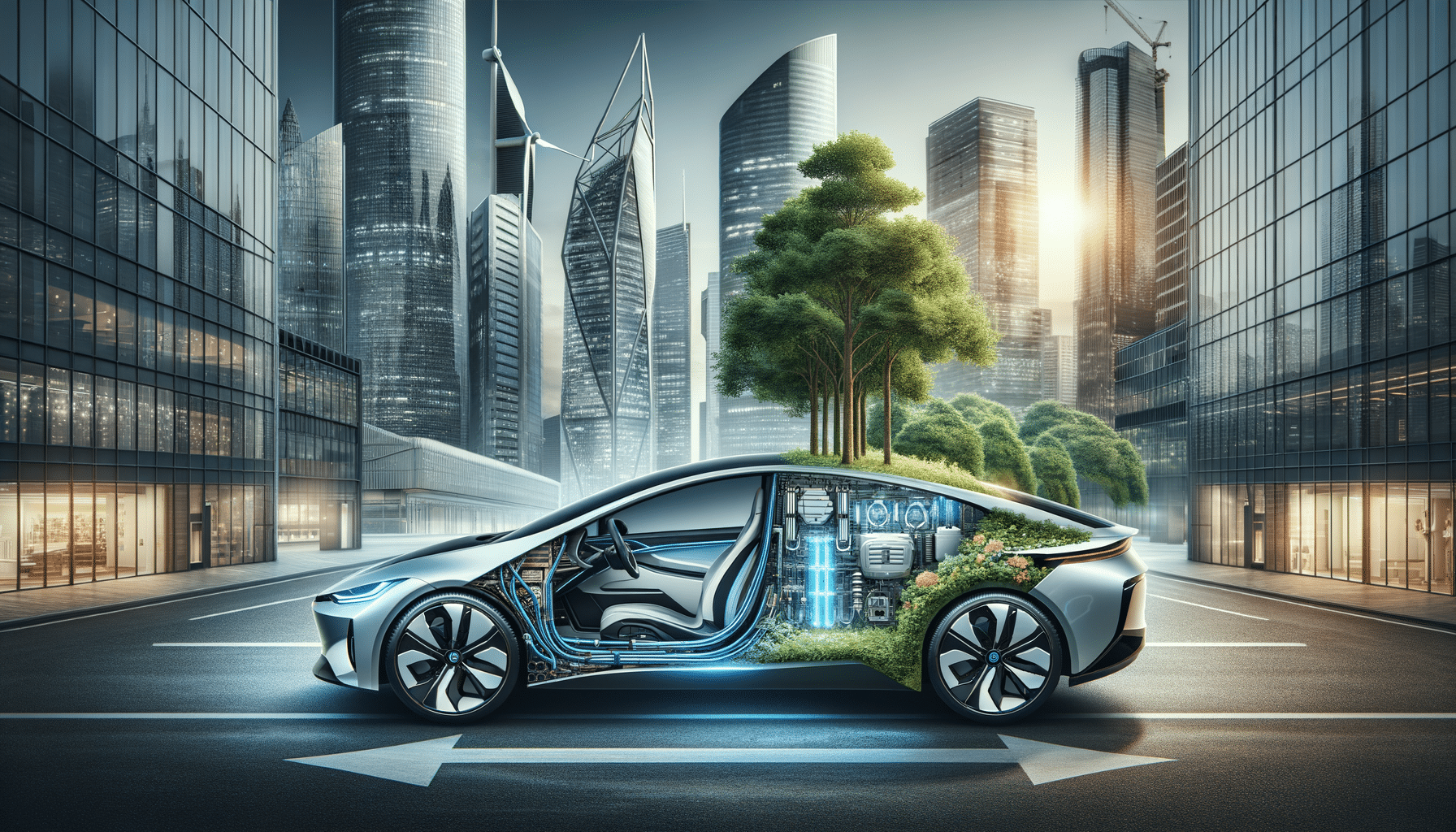
The Best of Both Worlds: Why Hybrid Cars Are the Future of Driving
Introduction to Hybrid Cars
Hybrid cars have become a symbol of innovation in the automotive industry, merging the traditional power of gasoline engines with the modern efficiency of electric motors. This combination offers drivers the flexibility and convenience of both worlds, making hybrid vehicles an appealing choice for many. As environmental concerns rise and fuel costs fluctuate, hybrid cars present a viable solution for those seeking to reduce their carbon footprint without sacrificing performance or range.
The growing popularity of hybrid cars is driven by their ability to operate efficiently in various driving conditions. They are designed to switch seamlessly between electric and gasoline power, optimizing fuel efficiency and minimizing emissions. This adaptability makes them particularly suitable for urban environments where stop-and-go traffic can otherwise lead to increased fuel consumption.
Hybrid technology is continuously evolving, with manufacturers investing heavily in research and development to enhance performance and reduce costs. This ongoing innovation is crucial as it aligns with global efforts to combat climate change and transition towards more sustainable transportation solutions.
Mechanics of Hybrid Technology
Understanding the mechanics behind hybrid technology is essential to appreciating its benefits. At the heart of a hybrid car is its dual power system, which combines an internal combustion engine with an electric motor. This setup allows the vehicle to use electric power at low speeds or during idling, while the gasoline engine takes over for higher speeds or when additional power is needed.
The synergy between these two power sources is managed by a sophisticated computer system that optimizes performance and efficiency. Regenerative braking is another key feature of hybrid cars, where energy typically lost during braking is captured and stored in the battery. This process not only improves fuel economy but also extends the life of the braking system.
Hybrid cars are equipped with a battery pack that powers the electric motor. These batteries are designed to recharge automatically while driving, eliminating the need for external charging in most cases. However, plug-in hybrids offer the option to charge the battery from an external power source, providing additional electric-only range.
- Dual power system: Combines internal combustion engine and electric motor.
- Regenerative braking: Captures energy during braking.
- Automatic battery recharge: No need for external charging.
Environmental Impact and Benefits
One of the primary motivations for choosing a hybrid car is its positive impact on the environment. Hybrid vehicles emit fewer pollutants compared to traditional gasoline-powered cars, thanks to their ability to operate on electric power for a significant portion of the time. This reduction in emissions contributes to improved air quality, particularly in urban areas where pollution is a major concern.
In addition to lower emissions, hybrid cars offer improved fuel efficiency, which translates to reduced fuel consumption. This is particularly beneficial as fuel prices continue to rise, making hybrid vehicles a cost-effective option for daily commuting and long-distance travel. The combination of reduced emissions and fuel savings makes hybrid cars an attractive choice for environmentally conscious consumers.
Furthermore, the adoption of hybrid technology supports global efforts to reduce reliance on fossil fuels and transition towards renewable energy sources. As more consumers opt for hybrid vehicles, the demand for cleaner energy solutions will likely increase, driving further advancements in sustainable transportation.
- Reduced emissions: Lower pollution levels.
- Improved fuel efficiency: Cost-effective and environmentally friendly.
- Supports renewable energy transition.
Performance and Driving Experience
Hybrid cars are not just about environmental benefits; they also offer a unique driving experience that appeals to a wide range of drivers. The combination of electric and gasoline power provides smooth acceleration and a quiet ride, particularly at lower speeds. This makes hybrid vehicles ideal for city driving, where noise pollution and stop-and-go traffic are common.
The advanced technology in hybrid cars ensures a responsive and dynamic driving experience. Many hybrid models come equipped with features such as adaptive cruise control and lane-keeping assistance, enhancing safety and comfort on the road. These features, combined with the inherent efficiency of hybrid technology, make for a pleasant and stress-free driving experience.
Moreover, hybrid cars are designed to deliver performance without compromise. The electric motor provides instant torque, resulting in quick acceleration, while the gasoline engine ensures that power is available when needed. This balance of power and efficiency makes hybrid vehicles suitable for both city commuting and long-distance travel.
- Smooth acceleration: Quiet and responsive driving.
- Advanced safety features: Enhances comfort and safety.
- Balanced performance: Suitable for various driving conditions.
The Future of Hybrid Cars
The future of hybrid cars looks promising as advancements in technology continue to drive innovation in the automotive industry. With increasing emphasis on sustainability and reducing carbon footprints, hybrid vehicles are poised to play a significant role in the transition towards greener transportation solutions.
Manufacturers are investing in research to improve battery technology, enhance electric motor efficiency, and reduce vehicle weight. These improvements are expected to lead to even greater fuel savings and reduced emissions, making hybrid cars an increasingly attractive option for consumers.
Government incentives and regulations aimed at promoting eco-friendly vehicles further support the growth of the hybrid market. As more countries implement stricter emissions standards, the demand for hybrid cars is likely to increase, encouraging further innovation and adoption.
In conclusion, hybrid cars represent a practical and sustainable solution for drivers seeking to balance performance, efficiency, and environmental responsibility. As technology continues to evolve, hybrid vehicles are set to become an integral part of the automotive landscape, offering a glimpse into the future of transportation.
- Technological advancements: Improved battery and motor efficiency.
- Government incentives: Promotes eco-friendly vehicles.
- Increased demand: Encourages innovation and adoption.


